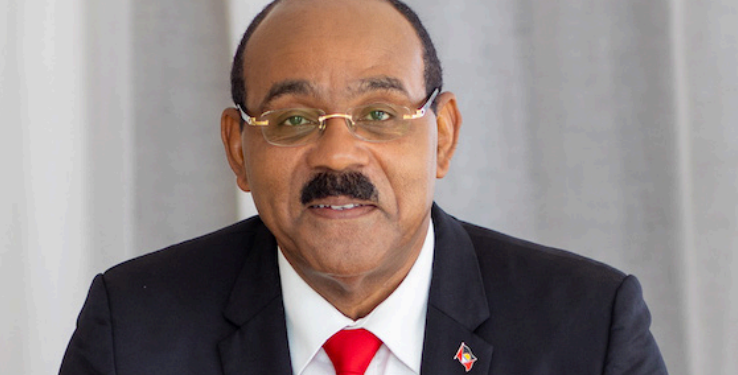The Prime Minister Gaston Browne has emphasized that his taking up of the chairmanship of the Eastern Caribbean Currency Union (ECCU) comes at a time when the region faces numerous geopolitical and climate-related challenges.
He highlighted the urgent need for transformational leadership to accelerate economic growth. PM Browne reinforced his belief that a nation cannot thrive if its people remain impoverished. He emphasized that strong social systems must be funded by a robust economic engine.
Browne’s vision involves a paradigm shift: transitioning from incremental growth to resilient prosperity through strategic investment, innovation, and inclusive development. While the region currently projects a modest 3.3% growth due to external headwinds, he aims to propel it toward an ambitious 7.2% annual growth rate, ultimately doubling the region’s GDP by 2035.
For Antigua and Barbuda, this would mean expanding the economy from $6 billion to $12 billion within a decade.
Driving Growth Through Entrepreneurship and Innovation
To realize this ambitious goal, the Prime Minister underscored the necessity for greater entrepreneurship and creativity across the sub-region. “We have to work smart,” he said, urging the use of technology, digitalization, and artificial intelligence to enhance efficiency and service delivery.
A central component of his strategy is expanding domestic ownership of key business assets. PM Browne expressed concern that when assets are foreign-owned, profits are often repatriated, weakening local economic benefits. His administration has prioritized empowering Antiguans and Barbudans by providing waterfront and beach lots and offering generous concessions for the development of Airbnb and other tourism-related ventures.
The goal is to lower startup costs and increase profitability, thereby enriching individual and collective wealth. This, in turn, would lead to higher tax revenues, increased dividends, and broader national prosperity.
Local Ownership as a Catalyst for Economic Sovereignty
PM Browne offered concrete examples of how domestic ownership benefits the state. One such case involved the acquisition of a local company by the government, which now yields approximately $6 million annually in dividends, in addition to $8–9 million in taxes—amounting to an estimated $150 million over nine years.
Had the company remained in foreign hands, those dividends would have left the country, and tax liabilities could have been reduced through creative accounting practices like transfer pricing. He cited Scotiabank’s former operations as an example, noting that millions were siphoned off to cover “head office costs,” thereby minimizing tax contributions.
Tax Avoidance and the Importance of Structural Reform
The Prime Minister acknowledged that tax avoidance, while legal, significantly reduces a nation’s net tax yield. He pointed to Sandals Resorts as a case study, asserting that despite consistently high occupancy rates, the company’s repatriation of funds for marketing and headquarters operations results in low tax payments.
These practices underscore the importance of domestic ownership and the challenges governments face in collecting their fair share of revenue. The prime minister reiterated the importance of foreign direct investment but maintained that true empowerment comes through ownership.
“If you don’t own anything, you’re not empowered,” he declared.



